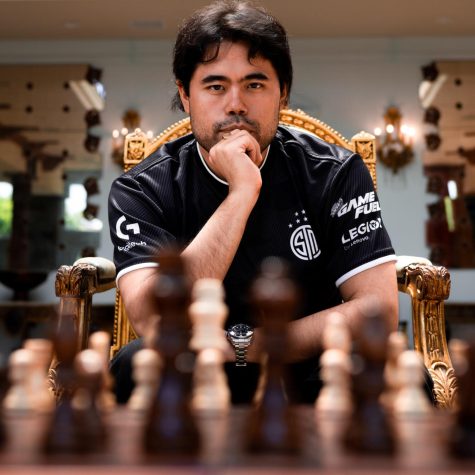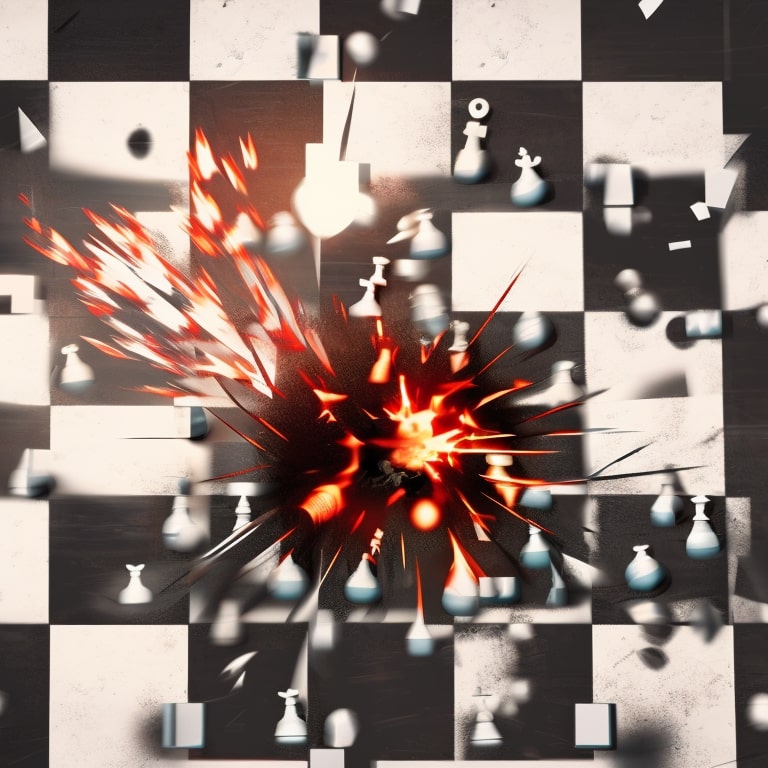Chess is Popular Now!?
A couple years ago, not many people played chess, especially not the younger generation. Over the past few years, however, the game has exploded in popularity. It began during the Coronavirus pandemic, everyone was staying at home, watching Netflix and the like. One of the more popular shows at the time was The Queen’s Gambit. After watching the show, many viewers, young people especially, were inspired to begin playing chess online, specifically on Chess.com and Lichess.org. After starting to play, players wanted to get better in order to beat their opponents, so they turned to YouTube. International Master (IM) Levy Rozman saw growth on YouTube, as well as Grandmaster (GM) Hikaru Nakamura—one of the best chess players in the world—on Twitch, streaming for several hours every day. The game even attracted influencers from totally different fields, such as Mr. Beast collaborated with Hikaru and the online “Pogchamps” tournament, featuring many popular streamers such as “Ludwig,” “penguinz0,” and “xQc.”

Following this sudden popularity, things seemed to die down, although still more people were playing than ever. Then, in September 2022, the Sinquefield Cup began. However, just before the start of the tournament, one of the players had to drop out. GM Hans Niemann, a 19-year-old prodigy from San Francisco, CA with one of the fastest rating games in history (although very few at the time were aware of him) replaced the player. In one round, Niemann was paired against GM Magnus Carlsen. At the time, Niemann was rated around 2650 in the ELO system, a rating system where you gain or lose points based on your opponent’s rating and the result of the game. Carlsen—five-time world chess champion and indisputable best player in the world—was rated around 2850, an incredible rating difference at the highest level. Furthermore, Carlsen had the white pieces, which go first, giving him a slight, but important, advantage.
Carlsen lost—his first loss in a classical game in 53 games.
Then, he withdrew from the tournament. The first time he had ever done such a thing.
Then, the cheating allegations began.
Then, the news reached the world, being published by the biggest news outlets, including the Wall Street Journal, the Guardian, and the New York Times. Chess had once again reached a global audience.
Then, in early 2023 was the latest explosion in the popularity of chess: the Mittens chess bot.
Every month, Chess.com releases a new series of chess bots, or algorithms that can respond to your moves. Each of them has a different strength and personality, exhibited in playstyle and a little small talk during the game. For the month of January, the theme was cats. However, something was different this time. The strongest of the bots, Mittens, had an unknown rating, but it was stronger than the previously highest rated bot on Chess.com, which was 3200 (Chess.com uses the Glicko 1 rating system, which is different from the ELO system. Magnus Carlsen has a rating of about 3300 on Chess.com). The point is: Mittens was strong. Really strong. Then, the regular chess YouTubers began making videos on it, and Hikaru Nakamura even played it to a draw. These videos exploded in popularity and again, millions were introduced to chess, making it more popular than ever. With hundreds of thousands of concurrent games, even the servers couldn’t handle it. Soon after, Ludwig, the aforementioned streamer who became more popular than ever, hosted the Mogul Chessboxing tournament, which saw hundreds of thousands of concurrent viewers.
Over the course of the past few years, chess has grown immensely. Pretty impressive for a game more than a thousand years old. I’ll leave you with the Google Trends data for the search term “chess” over the past five years in the United States.


I'm Shaumprovo Debnath. I like a lot of things, including the sciences, mathematics, and art. In particular, I'm fascinated by computer science, but my...

